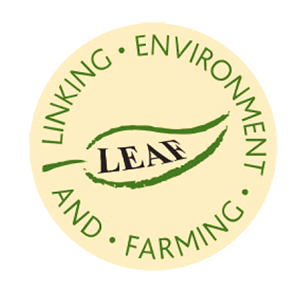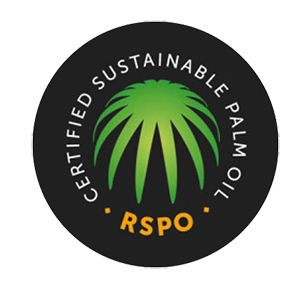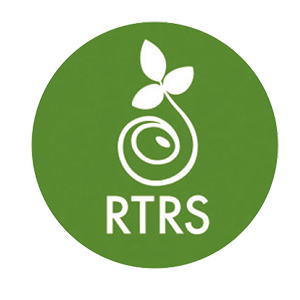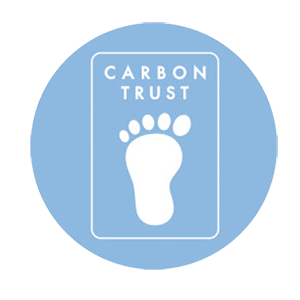By clicking a retailer link you consent to third-party cookies that track your onward journey. This enables W? to receive an affiliate commission if you make a purchase, which supports our mission to be the UK's consumer champion.
11 popular food assurance labels and what they mean

Food assurance labels tell you whether farmers have been paid a fair price and when produce has been grown or produced in a way that's sustainable.
In a survey of 1,206 Which? members in September 2019, 74% told us that sustainability is important to them when choosing what food to buy. They also told us there are too many labels and it's hard to distinguish between hype and fact.
While 91% in our survey recognised the Fairtrade logo, awareness of other assurance schemes was low. Only 26% recognised the Marine Stewardship Council (MSC) logo and 8% recognised the Leaf Marque logo.
Live more sustainably by reducing your food waste at home and keep your food fresher for longer.
Below are popular food assurance labels you're likely to see on food bought in the UK. Find out what they stand for to help you choose more ethically.
Food ecolabels
| Logo | Seen on | What is it? |
 | Bananas and other fruit, chocolate, tea and coffee, fruit juice and flowers. | Fairtrade covers environmental, economic and social standards. It's the only scheme that currently sets minimum market prices for what producers and farmers are selling and gives them an additional premium to invest in community projects. Certified farms also have fair working conditions, ban child and forced labour and meet environmental criteria such as responsible water use and minimal pesticide use. |
 | Coffee and tea, chocolate. | The Rainforest Alliance scheme covers social, economic and environmental issues as is part of the Living Wage Coalition. Certified produce must have systems in place to protect a farm's natural biodiversity and resources, including restricting the use of certain pesticides, not contributing to deforestation and minimising soil erosion. Farms must treat workers fairly and not allow child labour. |
 | Cadbury, Daim, Milka and Green & Black's chocolate. | Mondelez's own sustainability scheme, Cocoa Life, trains farmers to increase yields and income and adopt good farming practices to protect forests. It also works to empower workers and combat child labour. Fairtrade sits on the board of Cocoa Life. |
 | KitKat, Milkybar and Nesquik. | Nestle's own scheme, Cocoa Plan, aims to make cocoa farming more profitable for farmers by giving them better-yielding cocoa trees and training them to use land sustainably. It also works to eliminate child labour, empower women and improve transparency in the supply chain. |
 | Fish and shellfish caught in the sea. | If you see the Marine Stewardship Council (MSC) logo it means the fishery that caught the fish is part of a pledge to prevent overfishing and ensure enough fish are left in the sea. The fishery also needs to prove it doesn't affect other species or ocean habitats and comply with worker's rights. Certification status can change depending on fish stocks. It doesn't currently cover animal welfare issues such as how fish are treated when captured. |
 | 17 species of farmed fish including salmon, shrimp, trout and scallops. | The Aquaculture Stewardship Council (ASC) scheme was set up to minimise the impact of farmed fishing and promote fish that has been farmed responsibly and sustainably. Currently, standards vary depending on species but include showing minimal impact on surrounding areas, that pollution from the farm is managed and that fish feed is responsibly sourced. |
 | Farmed and wild fish and shellfish, and fish oil supplements. | For fisheries there are rules about overfishing, caps on discards and restrictions on bycatch. For fish farms, standards include minimising impact on surrounding areas and banning the use of growth hormones, GMOs (genetically modified organisms) and child labour. |
 | Fruit and veg, grains, plants, flowers, dairy products and meat. | Products carrying the LEAF Marque logo operate to sustainable farming standards, for example by managing soil quality, using water and energy efficiently and controlling pollution. 39% of UK fruit and veg is LEAF Marque certified. |
 | Whole Earth peanut butter, Jordan's Cereal.* | Palm oil production has led to huge deforestation. The Roundtable on Sustainable Palm Oil (RSPO) Certified Palm Oil scheme accredits palm oil that's been produced sustainably and without causing harm to people or the environment. Boycotting palm oil isn't the solution, as lower-yields crops would have more adverse environmental impacts. |
 | Quorn Foods | Soya production has quadrupled in the past 20 years and caused destruction of forests and natural habitats in Brazil. The Round Table Responsible Soy (RTRS) scheme promotes good agricultural practices that respect the local environment and fair labour conditions. 90% of soya grown is used in animal feed. |
 | Quorn Foods and Kingsmill bread. | The Carbon Trust Footprint logo can be used to show either the carbon or water footprint of a product, or a reduction in the creation of carbon dioxide or water use during production. |
*Products don't always carry the logo, because palm oil makes up a small proportion of ingredients but 'sustainable palm oil' should be listed.
Why the label won't always represent what's in the packet
Fairtrade and Rainforest Alliance use something called mass balance on certain products.
This means that companies purchase 100% of the volume of ingredients that they label with the Fairtrade or Rainforest Alliance label, but do not need to keep it separate and may mix it with non-Fairtrade or Rainforest Alliance ingredients at some point in the supply chain.
The amount sold as Fairtrade or Rainforest Alliance must match the amount purchased.
Mass balance isn't used for whole fruit, flowers and plants.
It can be employed for products such as fruit juice, cocoa, tea and sugar.
Here's how it works:
While the end product you buy may not contain the certified produce, it's important to remember that the farmer or producer is still getting the benefit from the certified product, such as a fixed price or improved working conditions.
Consider investing in a reusable coffee cup to make your morning coffee more environmentally friendly and save money.



